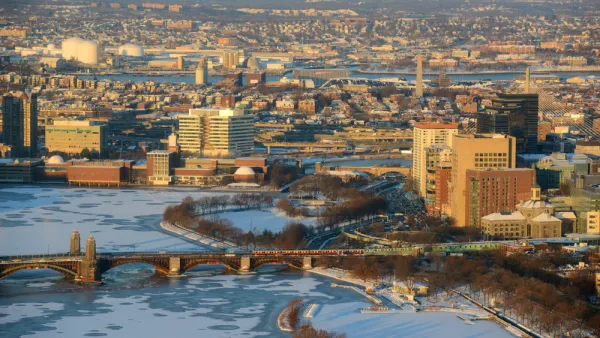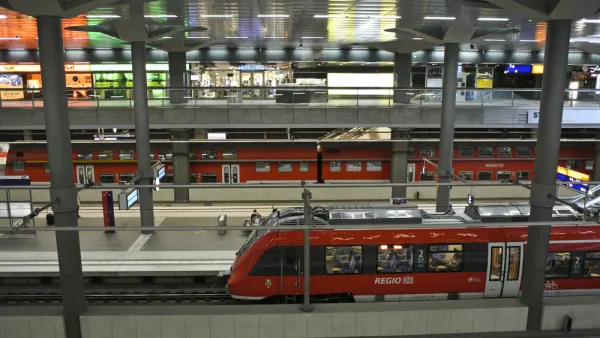In its second major report since 2007, the U.N. panel's report was not all bad news. It noted that while nations may be slow to agree to climate treaties, city and state governments have written their own climate plans along with the private sector.
The Intergovernmental Panel on Climate Change unveiled its Fifth Assessment Report entitled, "Climate Change 2014: Mitigation of Climate Change" in Berlin on April 13. The bad news: It "found that decades of foot-dragging by political leaders had propelled humanity into a critical situation, with greenhouse emissions rising faster than ever," writes Justin Gillis. But do not lose hope.
Not only is there still time to head off the worst, but the political will to do so seems to be rising around the world.
However, they warn that "only an intensive push over the next 15 years to bring those emissions under control can achieve the goal, the committee found," writes Gillis.
The goal, writes NPR's science desk correspondent, Nell Greenfieldboyce, is to meet "an international target to control climate change: keeping the global temperature rise to just 2 degrees Celsius above pre-industrial levels — that's 3.6 degrees Fahrenheit." [Listen here].
In what may be a first for the IPCC, it acknowledged geo-engineering solutions that extract carbon dioxide from the atmosphere. Greefieldboyce states that these options "could possibly manipulate the atmosphere and artificially cool the planet."
"It's controversial among environmental advocates, it's controversial among scientists, and it's certainly controversial among governments," says Harvard University's Robert Stavins, an economist and expert on climate agreements who worked on the report. "But research is clearly needed."
In advance of the report's release, Julia Pyper and ClimateWire wrote in Scientific American of the importance of stemming the growth of greenhouse gases from transportation. The "IPCC (a)uthors project with high confidence that continued growth in emissions from global passenger and freight activity could 'outweigh future mitigation measures'."
FULL STORY: Climate Efforts Falling Short, U.N. Panel Says

Analysis: Cybertruck Fatality Rate Far Exceeds That of Ford Pinto
The Tesla Cybertruck was recalled seven times last year.

National Parks Layoffs Will Cause Communities to Lose Billions
Thousands of essential park workers were laid off this week, just before the busy spring break season.

Retro-silient?: America’s First “Eco-burb,” The Woodlands Turns 50
A master-planned community north of Houston offers lessons on green infrastructure and resilient design, but falls short of its founder’s lofty affordability and walkability goals.

Test News Post 1
This is a summary

Analysis: Cybertruck Fatality Rate Far Exceeds That of Ford Pinto
The Tesla Cybertruck was recalled seven times last year.

Test News Headline 46
Test for the image on the front page.
Urban Design for Planners 1: Software Tools
This six-course series explores essential urban design concepts using open source software and equips planners with the tools they need to participate fully in the urban design process.
Planning for Universal Design
Learn the tools for implementing Universal Design in planning regulations.
EMC Planning Group, Inc.
Planetizen
Planetizen
Mpact (formerly Rail~Volution)
Great Falls Development Authority, Inc.
HUDs Office of Policy Development and Research
NYU Wagner Graduate School of Public Service




























